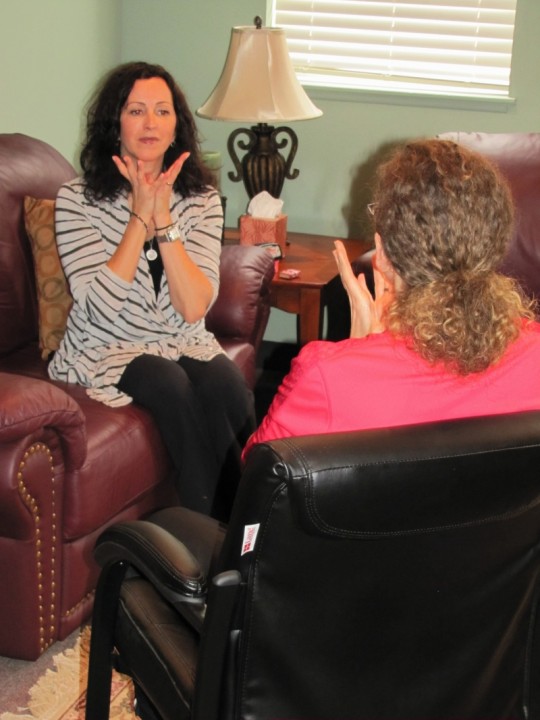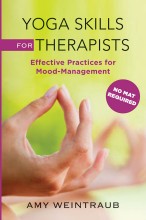
These days, most mental health professionals understand the importance of regulating the body to regulate the emotions and many therapists have been using some form of somatic intervention for years. But did you know that there are a wide range of yoga practices that don’t require yoga teacher certification and are appropriate in a clinical setting? These yoga practices can help your clients focus, have greater access to feeling states and prepare them for the work of therapy.
The ancient yogis used the laboratory of their bodies to work simultaneously with all aspects of the system, or what the yogis call the koshas or sheaths. There are yoga practices that do not require a mat and that work on all levels at once, bringing ease and balance to the physical, energetic, emotional, mental and bliss bodies. LifeForce Yoga practices are not New Age inventions, nor are they made up by me and other contemporary yoga teachers. They hark back to yoga’s roots, and the beauty of these timeless teachings is that they are perfectly suited to the consultation room.
The principles of yoga complement the ultimate goals of therapy: self-awareness, self-acceptance, self-efficacy, self-regulation, and whatever individual goals you and your clients may hold for their optimum well-being. There are three simple and distinct ways in which yoga can profoundly support your therapeutic work.
First, yoga practices can assist in establishing and maintaining the therapeutic bond in its offering of rituals and practices, of which there are many. The ritual can be as simple as the lighting of a candle, or the use of a hand gesture called a mudra. You can offer your client a simple yoga breath called a pranayama or an image of sanctuary or of peace called a bhavana. Some clients may appreciate a soothing universal tone called a mantra, or a cleansing breath called a Kriya. Any one of these practices can clear the emotional space at the beginning of a session so that the client’s intention for the session or for his life may naturally reveal itself.
Second, there is a slow invitation to move back into a felt sense of living in the body, without ever having to say so directly. This begins with first leading a simple practice, and then the subtle cueing the therapist offers to her client, allowing him to acknowledge sensation in his face, for example, or his hands, without ever saying, “It’s safe to feel your body,” a concept your client’s mind may immediately resist.
Third, there are many practices appropriate in a clinical setting that are based in the body and yet gently begin to still and focus the mind for the work of therapy.
The principles of yoga can help you and your client understand that beneath the diagnostic label, there is a wellspring of wholeness unpolluted by the traumas and losses the client has lived through that is not separate from the ocean of universal wholeness. What this means for you as a clinician is that you are the agent of change for your clients, not by fixing or teaching, but by leading a practice that allows them moments of seeing that within them, hidden by even the worst abuse and the mental states that arose to cope with that abuse, beneath the most challenging mood dis-regulation, they can find moments of wholeness and a sense of connection with a nature that is unsullied by their losses and traumas.
 If you are a healthcare or yoga professional, explore whether the LifeForce Yoga Practitioner Training is right for you.
If you are a healthcare or yoga professional, explore whether the LifeForce Yoga Practitioner Training is right for you.
There are fifty-two practices with photos that are appropriate in a clinical setting in my book, Yoga Skills for Therapists: Effective Practices for Mood Management. To purchase a copy please click here.
